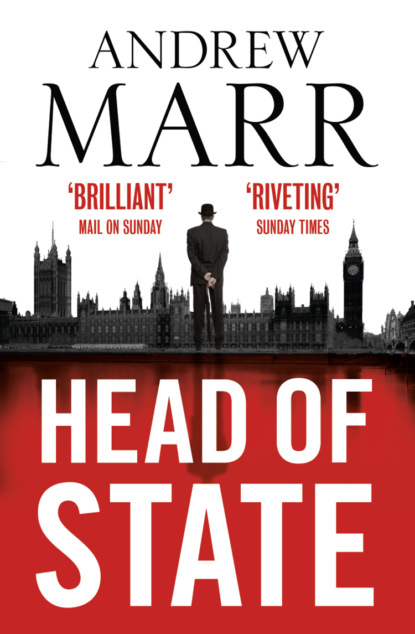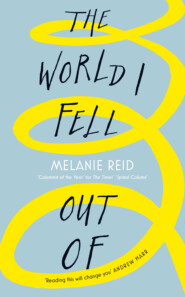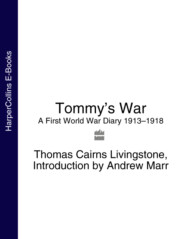По всем вопросам обращайтесь на: info@litportal.ru
(©) 2003-2024.
✖
Head of State: The Bestselling Brexit Thriller
Автор
Год написания книги
2018
Настройки чтения
Размер шрифта
Высота строк
Поля
He hated the clever rat-run route his driver had chosen, which had led straight into this hunched chaos, a clogged artery of barely moving German engineering. He hated the prospect of lunch with the proprietor’s son, an Eton-educated stoat who affected purple tweeds and whose girlfriend was on the cover of half the colour supplements most weekends. He didn’t mind the proprietor himself, a rough, cynical man who had made his money in property in the sixties. But he hated the son.
And he hated his Mercedes. He’d have been faster on a bike. He’d have been faster hopping on one foot, probably. Never in human history had so much engineering been expended to transport so few people such short distances so slowly. But try getting that in the paper.
Yet a car and driver was one of the last perks left for national newspaper editors, as their circulations shrivelled and their once-mighty legions of reporters were reduced to hysterical little platoons of underpaid dimwits. So he used the journey every morning to read his own paper, savagely underlining mistakes and striking through bad headlines, then scanning the opposition and drawing up lists of stories missed, or angles his guys had failed to see. Then he’d check Witter, jot down a few ideas for the morning news conference, and make some calls to cheer himself up.
At least in the office there was order and hierarchy and clear lines of command – Ken often reflected that had domestic life been as well-run as office life, the world generally would be a lot happier and better-ordered. At work, people knew their place, and could be rude or amusing to one another without offence being taken. Behind the front door of his house, the rules had been mysteriously different. His now ex-wife’s flaming temper had matched his own, and on the few occasions when things had come to blows, she was faster with her fists too.
This morning his first call was to the news editor. Some good news, or at least real news. Yesterday afternoon a body had washed up on the embankment of the Thames, on a sliver of mud just below Battersea Park. The local nick, which was in the pay of his crime reporters, had tipped the Courier off. Christmas envelopes were the gifts that kept on giving.
As described by the police, the body was that of a heavily-built, naked white male in his late fifties or early sixties. The head and hands had been cut off. A Russian mafia killing? But the police had said that the only clue to the deceased’s identity was a single Royal Navy tattoo. So whoever he was, he had been English.
The news editor had given the job to the paper’s last proper investigative reporter, Lucien McBryde. But now Ken Cooper couldn’t get the arrogant little sod to pick up his bloody phone.
McBryde, he reflected, had been behaving oddly in the last couple of days. He claimed to be closing in on a sensational political story. And certainly, these were sensational political times. The referendum was slicing the country down the middle. The British had always been a people slow to feel political enthusiasm – one of the great secrets of their national survival. But now, families were dividing over supper tables, and offices were riven by arguments about a subject bigger than football or waxing. Ken’s car had already passed a dozen hoardings featuring the wrinkled, boxer’s face of the prime minister – ‘Your choice, your future. Vote Clever’ – and as many, if not more, from the anti-Europe campaign, now led by the former home secretary Olivia Kite, who with her red hair, pale face and vivid crimson lips looked increasingly like Elizabeth I, or at least Cate Blanchett – ‘Your country, your choice. Give your children the gift of freedom.’
But if Lucien McBryde had something to add to the earsplitting arguments over Britain’s future, he hadn’t shared it with the paper’s political editor, or with Ken himself. He’d just said he was on to something that would ‘change everything’. He had seemed even nervier and more excitable than usual, though that was probably down to the marching powder. He had also recently broken up with his girlfriend.
Whatever McBryde was up to, he wasn’t answering his phone. Ken groaned, decided not to leave a voicemail message, and turned his phone to silent. Perhaps there wasn’t really a story at all, and the whole thing was just an excuse. It wouldn’t be the first time. Ken was glad that McBryde had been given the headless Battersea corpse. It would settle him down. Calm him. Give him something solid to get his teeth into.
But still, it was bloody rude of him not to answer his phone. It was past 9 o’clock. How dare the little badger not pick up?
Ken Cooper’s World (#ulink_836587f8-6d9d-5d3e-bf3b-6513fe6e8f97)
The trainee was an experiment. The managing editor of the National Courier considered the trainee perhaps the crowning achievement of his career.
This morning, the trainee’s job was to sit by the window that looked onto the street outside the National Courier and watch until he saw the silver Mercedes containing the editor. At that point he had to go – ‘quickly, but not running’ – to the managing editor’s office and tell him. In the roughly one hundred seconds between the car being spotted and Ken Cooper shouldering his way through the revolving doors, the managing editor was able to summon the foreign editor, the business editor, the features editor and the sports editor. They would be waiting in the foyer with pointlessly ingratiating smiles as Cooper made his way to the lift.
‘Just under the million. Eight per cent down on last year, and ten per cent since the spring promotion,’ said the managing editor.
‘Fuck off. We’ve cut the price in the Midlands, and we’re still going down the toilet? The Telegraph’s only seven per cent down; Guardian, seven per cent down. Thought about hiring some journalists?’
The managing editor did not need to hire any journalists. But he did not tell Ken Cooper that.
The foreign editor was next in line. ‘We’ve completely ignored the Malaysian typhoon, boss. Twenty thousand dead, and not even a line on the front.’
‘Fuck off. That twenty thousand included a rich couple from Chelsea and their son who’d just started at Harrow. The Daily Mail had it. We didn’t. Your fault. Not mine.’
Then the business editor: ‘A cracking story from Sir Solomon Dundas, boss. They’re going to split up that Scottish bank after all.’
‘Fuck off. Dundas is a self-promoting wanker. His last tip was crap. I don’t want another story with his sticky fingers on it in this newspaper, ever.’
The features editor was offering six of the best chocolate recipes, an article about why Bloody Marys were back in vogue, and an interview with Mia Farrow’s son. Ken told him to fuck off and come back with something fucking interesting.
The sports editor, a lean, gnarled man with a bald head and rimless glasses, got him just before the lift doors opened. ‘Boss?’
‘Yes?’ said Ken.
‘Nothing really … Just – fuck off, boss.’
Ken laughed. He was beginning to feel better.
Exactly the same performance took place every morning. These days there was less tension than usual, because there was only one story in town. Everybody at the National Courier knew that the front page would be referendum, referendum, referendum. The cartoon would be referendum. The comment pages would contain referendum yes and referendum no. The editorial would be referendum maybe.
There were still twenty-five minutes before the morning editorial conference. Time enough for the foreign editor to tell his key staff to fuck off and bring him something interesting; for the business editor to tell his banking correspondent to fuck off and stop depending on the same old sources; for the features editor to tell everyone who worked for him that they were fucking useless; and for the sports editor to smoke three cigarettes. In this way, a great newspaper was coming together.
Nobody told the trainee to fuck off. Nobody even knew the trainee’s name. He was a well-dressed young man in his early twenties, with beautifully cut hair, neat nails and a degree in journalism studies. He possessed, as all journalists must, a plausible manner, a little literary ability and a good deal of rat-like cunning. Despite these advantages, he was known only as ‘oi’. When he protested about this to the managing editor, the managing editor quite truthfully explained that his name did not matter, since nobody would ever need to know it. Like him, most of the younger journalists at the Courier were work-experience trainees who lived at home with their parents in Ealing, Primrose Hill or Highgate. Because the paper was prestigious and jobs in journalism were almost impossible to find, none of them was actually being paid. Everybody benefited from this arrangement. Their parents could boast to their friends about their children’s prestigious jobs. The paper got a steady supply of free labour. And the trainees quite enjoyed themselves. Occasionally the managing editor allowed himself to think of the many thousands of bright young people from poorer families who would never get the chance to work in journalism – but not for too long, because he knew that the current system made perfect economic sense.
One day as he was sitting at his desk, the managing editor had found himself wondering whether, as wealthy parents were clearly willing to subsidise their offspring, some of them might be prepared to go further, and actually pay the Courier to employ them. So the trainee’s banker father was currently paying £30,000 in return for his son working at the paper. He regarded it as money well spent: if he paid £100,000 for a painting so he could boast about it at dinner parties, and many times that on dull holidays so he could boast about them, £30,000 was a small price to pay to allow him to boast about his dim but well-meaning son’s journalistic career. Half of the money was going into the newspaper’s coffers; the other half was going to the managing editor. The managing editor feared that one day Ken Cooper would discover what was going on; and that would be an unpleasant day. So the trainee could not stay forever. He was just an experiment. In the meantime, everybody called him ‘oi’. The trainee, who dreamed of being a gossip columnist, was not put off, however. He had sticking power. He passionately believed that one day, somehow, someone would tell him too to fuck off.
How History is Made (#ulink_cc974de8-cda6-50f4-b7ab-76d53cfcbeb4)
At the moment that Ken Cooper stepped into the lift, Lord Trevor Briskett and his research assistant Ned Parminter were squashed together in a commuter train from Oxford. They were both scanning that morning’s Courier. Lord Briskett read the paper from the middle outwards, starting with the editorial and the commentators, then checking the business and political news, before idly skimming the home pages, which were mostly filled with things he’d heard already on last night’s news or the 7 a.m. bulletin on the Today programme. One celebrity was in favour of decluttering. Another was less sure. The girlfriend of somebody on a television show had drunk too much in a club. The age of newspapers, he reflected, was coming, whimpering, to an end.
Ned Parminter was brushing through the iPad edition of the paper with his forefinger, flicking the screen at great speed. The Courier at least still covered politics with some vigour, although the news pages seemed to be in favour of Britain leaving the EU, while the comment pages were aggressively the other way.
Neither of them paused to read the short report on the headless Battersea corpse. Corpses, particularly headless ones, were clearly something to do with the criminal underworld, and were therefore politically unimportant. Briskett and Parminter were following a bigger story than that. ‘Vote clever.’ ‘Vote for freedom.’ A nation torn in two.
Dressed in his trademark coarse green tweeds, with his halo of frizzy white hair and heavy horn-rimmed spectacles, part A.J.P. Taylor, part Bamber Gascoigne, Trevor Briskett was famous enough from his TV performances to attract second glances from his fellow commuters. On the streets of Oxford – that crowded, clucking duckpond of vanity and ruffled feathers – he was stopped-in-the-street famous.
And rightly so. For Briskett was the finest political historian of the late twentieth and early twenty-first centuries. His early biographies – Blair, Thatcher, Johnson – were still in print, while the memoirs of scores of almost-forgotten politicians had long since vanished to charity shops and recycling dumps after selling only a few score copies. Briskett’s account of the modern constitution had been compared to the works of that Victorian master-journalist Walter Bagehot. His history of British intelligence during the Cold War had been praised by all the right people. Emeritus professor at Wadham, winner of numerous literary prizes, elevated five years ago to the Lords as a crossbencher after chairing a royal commission on security lapses at the Ministry of Defence, Briskett was regularly tipped to be the next member of the Order of Merit.
Yet somehow these decorative embellishments, which might have weighed him down and made him soft, slow and comfortable, had had little apparent effect on Trevor Briskett. At seventy he was as sharp, as boyishly enthusiastic, as wicked a gossip with as rasping a laugh, as he had been at thirty. The exact nature of the pornography discovered on the minister’s lost laptop. The attempt to blackmail a senior minister over his wife’s cocaine habit. Just who Olivia Kite was taking to her bed these days … If you really wanted to know, you went to Briskett, and he would tap his nose, lean towards you, give a wolfish smile and a ‘dear boy’, and spill all the beans.
Thus, it had generally been admired as a rather brave decision when the prime minister announced that he had appointed Briskett as the official historian of the great European referendum. The PM, himself an amateur political historian, had argued that such was the momentous nature of the choice now before the British people that they were owed – the nation was owed – a proper, in-depth account by a proper writer. Briskett, he had promised, would be given unparalleled access to the members of his inner team for the duration of the campaign. He would be welcomed at Downing Street, he would be given copies of the emails, the strategy documents – everything. And after it was all over, people might actually read his book.
No sooner had the PM announced this than Olivia Kite, on behalf of the get-outers, issued a press release declaring that she too admired Lord Briskett, whom she regarded as an authoritative and independent voice, and that she would give him the same level of access to her team.
The political commentators said that the PM’s decision to give contemporary history what Briskett had called ‘the ultimate ringside seat’ was evidence of his great confidence about the outcome of the referendum. His evident conviction that he would win, and that victory would be the ultimate vindication of his premiership, was itself damaging to his opponents. Olivia Kite had had little option but to make Briskett as welcome in Prince Rupert’s tent as in Cromwell’s.
Basking in this hot limelight, Briskett moved lightly. He wanted to do all the work himself, so far as he could. He had brought in only his protégé Ned Parminter, a shy but brilliant PhD student who, Briskett thought, might one day be a significant contemporary historian himself.
Parminter, with his wiry black beard and intense dark eyes, looked like an Orthodox priest in civilian clothes. Although he shared Briskett’s urbane sense of humour, his romantic English patriotism had a fanatical streak.
Together, the two of them made up a balanced ticket: Briskett’s delight in Westminster gamesmanship inclined him towards the larger-than-life, principled yet unscrupulous figure of the prime minister. Parminter, a specialist in the seventeenth-century development of Parliament, was a natural Olivia Kite supporter. They had, of course, never discussed their allegiances on this matter between themselves.
Now the two of them were on their way to meet the prime minister himself. As the train wriggled through West London towards Paddington, Briskett leaned forward in his seat.
‘You’re seeing that … girl, Ned, after our rendezvous?’
Parminter scratched his beard under his chin, a sign of anxiety, before slowly replying. ‘She’s invaluable. She’s across everything in the Kite campaign. She reads all the emails, all Kite’s texts, on her official BlackBerry and her personal one. She’s copying us into every piece of traffic.’
‘And does the ever-lovely Mrs Kite know this?’
‘Apparently. I think she must. Jen’s nothing if not loyal, so I guess Kite’s fine with it.’
‘Good girl. Good for you, too.’
‘There is one other thing. It’s a bit odd. She also seems to know rather a lot about what’s happening on the other side. Far more than she ought to. Hidden channels in Number 10, perhaps.’









